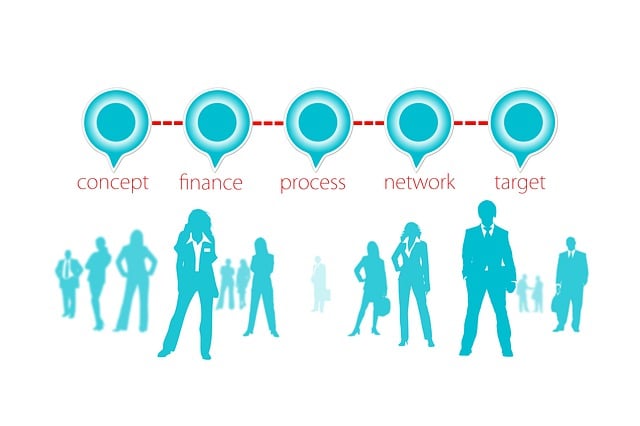In today's globalized academic community, UK Academic Journals Translation Services play a critical role in facilitating knowledge exchange by providing accurate, high-quality translations of scholarly works. These services act as gateways, enabling researchers worldwide to access and understand diverse academic literature. With advanced technologies like machine translation and automated post-editing, they ensure consistent, contextually appropriate, and cost-effective translations, fostering inclusivity, and accelerating the global dissemination of research. Choosing a reputable service with specialized linguists and robust quality control is essential for maintaining academic standards and expanding global reach.
In today’s global academic landscape, reliable translation services are indispensable for UK academic journals aiming to reach a diverse readership. This article delves into the critical importance of accurate translations for academic journals and offers a comprehensive guide to selecting top-tier translation services. From understanding key considerations to exploring advanced technologies, we provide essential insights to ensure quality and reliability in journal article translations, enhancing accessibility and impact across international boundaries.
- Understanding the Importance of Accurate Translation for Academic Journals
- Key Considerations When Choosing a Translation Service for UK Academic Journals
- How to Ensure Quality and Reliability in Journal Article Translations
- Exploring Advanced Technologies in Journal Translation Services
Understanding the Importance of Accurate Translation for Academic Journals

In the realm of academic journals, where knowledge and research are exchanged globally, accurate translation plays a pivotal role. When scholarly works traverse linguistic boundaries, ensuring faithful and precise rendering is non-negotiable. UK Academic Journals Translation Services step in as the crucible where words are meticulously transformed, preserving the essence and intent of the original research while catering to diverse linguistic needs.
The significance of this process cannot be overstated, especially in today’s interconnected academic community. Inaccurate translations can lead to misinterpretations, potentially skewing the reader’s understanding of the research presented. Reliable translation services for UK academic journals ensure that scholarly discourse remains clear, coherent, and accessible to a worldwide audience. This fosters inclusivity and promotes the unfettered flow of ideas, which is essential for advancing knowledge across disciplines.
Key Considerations When Choosing a Translation Service for UK Academic Journals

When selecting a translation service for UK academic journals, several crucial factors come into play to ensure accuracy and quality. The primary consideration is expertise; look for providers specializing in academic translation, with a deep understanding of the specific terminology used in your field. This ensures that complex concepts are conveyed precisely in the target language. Reputable services will have experienced linguists who not only excel in linguistic skills but also possess a strong command of academic writing styles and formats.
Another key aspect is quality assurance. Reputable translation agencies implement rigorous quality control measures, including peer review and editor checks, to guarantee accuracy and consistency. They may also offer additional services like proofreading and editing to refine the translated content further. Security and confidentiality are essential, especially when dealing with academic research. Ensure that the service has robust security protocols in place to protect sensitive information and intellectual property.
How to Ensure Quality and Reliability in Journal Article Translations

Ensuring quality and reliability in journal article translations is paramount, especially for academic journals seeking to maintain their standards and reach a global audience. One crucial step is choosing a reputable UK Academic Journals Translation Service with experienced linguists who specialize in your field. Look for providers that offer not just machine translation but also human post-editing to catch nuances and ensure accuracy.
Additionally, consider services that implement rigorous quality assurance processes, including proofreading and editing checks. Reputable translators often provide certifications and guarantees, ensuring client satisfaction. Remember to request samples or references to assess their language proficiency and adherence to your journal’s style guide before committing to a translation project.
Exploring Advanced Technologies in Journal Translation Services

In the digital age, advanced technologies are reshaping the landscape of journal translation services, particularly in the UK academic journal sector. Machine translation (MT) tools, powered by neural networks, have made significant strides in producing high-quality, accurate translations. These tools can handle complex linguistic structures and nuances, ensuring that technical terms and specialized terminology remain faithful to their original meaning. Moreover, automated post-editing (APE) processes further enhance the efficiency and precision of translations by allowing human translators to quickly review and refine machine-generated outputs.
The integration of artificial intelligence (AI) in journal translation services offers several benefits. AI algorithms can analyze vast amounts of data from previous translations, enabling them to learn and improve over time. This means that UK academic journals can benefit from more consistent and contextually appropriate translations as the technology evolves. Additionally, AI-driven tools can streamline workflows, reduce costs, and enable faster turnaround times without compromising on quality, thereby facilitating the global dissemination of scholarly research.
When it comes to UK academic journals translation services, ensuring accuracy and reliability is paramount. By understanding the importance of precise translation, considering key factors when selecting a service, and leveraging advanced technologies, researchers can effectively communicate their work across linguistic barriers. This article has provided valuable insights into navigating this essential process, enabling professionals to uphold the integrity of their research in a global academic landscape.
